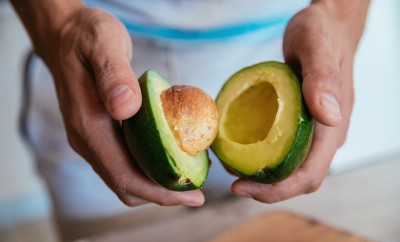Cultures
Health Secrets Of The Mediterranean Diet

Image: Shutterstock/Artens
Health Secrets Of The Mediterranean Diet
The Mediterranean, the region near the Mediterranean Sea which includes parts of Spain, Italy and Greece, boasts what many medical professionals call the healthiest diet in the world—the Mediterranean diet. After years of studying the region, researchers were surprised to discover that residents of the Mediterranean live longer, suffer fewer health problems and enjoy a greater quality of life overall compared to their Western counterparts! Just what makes their diet so special? Researchers discovered ingredients, food preparation and pairings that can easily be adopted by anyone looking for a more wholesome lifestyle.
Whole Grains
Unlike many fad diets, the Mediterranean diet certainly doesn’t cut carbs. Instead, only carbohydrates with high nutritional value are consumed. Forget white bread, white flour and simple starch pastas. If the first ingredient in your pasta is bread or flour that isn’t 100% whole wheat, swap it for another brand. White flours and grains not only convert to sugar quickly, but have little nutritional value. By eating 100% whole grain carbohydrates you’ll get all of the energy and fiber your body needs.
Replace Butter With Healthy Oils
In Western diets, butter serves as a complement to many baked, sautéed and side dishes. In lieu of butter, the Mediterranean diet makes use of plant-based oils like olive and walnut. Instead of reaching for the butter to complement your bread at dinner, try a mix of balsamic vinegar and extra virgin olive oil. Olive and walnut oils can also be used to sauté vegetables and meats.
More Fish, Less Meat
In contrast to Western diets that rely heavily on red meat for protein, the Mediterranean diet is based on moderate consumption of fish. Fish has an added benefit—it is full of Omega 3 fatty acids, a natural anti-inflammatory that promotes healthy hair, skin and nails. Nix the red meat in favor of chicken, turkey and of course fish, at least twice per week. When planning meals think of meat as a complement rather than a main dish. It’s best to consume no more than 3-4 ounces per meal.
Eliminate Processed Snacks
Chips, crackers and even sweets satisfy cravings in between meals in the West. Seeds, nuts and slices of cheese are the most common snacks in the Mediterranean. Seeds and nuts are good sources of essential nutrients including vitamin B, iron and magnesium. Nuts are also very filling so you won’t need to snack often. Cheese is a good source of calcium and is equally filling.
Learn To Love Wine
Alcohol is the secret enemy that inflicts all kinds of evil on the body from weight gain to hangovers and general malaise. You’ll be glad to know that the Mediterranean diet doesn’t eliminate all alcohol, but it may require you to change your drink of choice. Instead of beer, mixed drinks and hard liquor learn to appreciate a good glass of wine. One glass of wine with dinner or dessert may do more good than harm. Red wine, which contains the natural ingredient resveratrol, has demonstrated both anti-inflammatory and anti-cancer qualities. Red or white, dry or sweet, find a wine that suits your taste buds to satisfy alcohol cravings.
Find Your Farmers Market
Search for a local farmer and indulge in seasonal fruits and vegetables. Meat should be a side dish, remember? Grill, bake, steam and broil fresh vegetables to accompany every meal. When it comes time for dessert, reach for an apple or pear. Fresh produce forms the base of every meal in the Mediterranean.
The Mediterranean diet is an artful balance of fresh produce, whole grains and good fats from nuts, fish and dairy. It’s simpler than you think. Eliminate alcohol, processed snacks and foods of low-nutritional value and you are left with the core of the Mediterranean diet. Remember to enjoy your food slow and pair it with a glass of wine like a true native of the Mediterranean.





0 comments